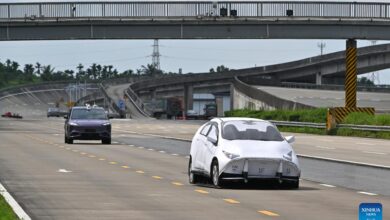ASEAN, Japan develop joint automobile production strategy

The Association of Southeast Asian Nations (ASEAN) and Japan plan to create their first joint strategy on automobile production and sales within Southeast Asia in the context of China’s increasing presence in the regional electric vehicle market.
Hanoi (VNA) – The Association of Southeast Asian Nations (ASEAN) and Japan plan to create their first joint strategy on automobile production and sales within Southeast Asia in the context of China’s increasing presence in the regional electric vehicle market.
ASEAN is now home to the factories of several Japanese automakers, including Toyota Motor and Honda Motor. Japanese automakers assemble more than 3 million vehicles annually there, accounting for some 80% of the total production in the region, with many of the vehicles exported to the Middle East and other markets.
The joint strategy is expected to cover cooperation in personnel training, decarbonisation in production, mineral resource procurement, investment in fields such as biofuels, and an information campaign for global consumers about how eco-friendly the vehicles produced in ASEAN are.
Japan intends to allocate 140 billion JPY (900 million USD) for human resources training. Workers at factories and parts suppliers will receive training in digital technologies.
Japanese technologies are to be used to measure the amount of carbon dioxide emissions from factories and promote the shift to renewable energy sources.
For investment in other fields, the two sides will look at joint procurement of rare materials used in EV batteries and explore research in such areas as recycling batteries.
ASEAN and Japan will jointly advertise these environmental efforts to the rest of the world in a bid to boost auto exports. The two sides will also join hands in making forecasts for the global auto market, including in developing countries, through 2035./.



